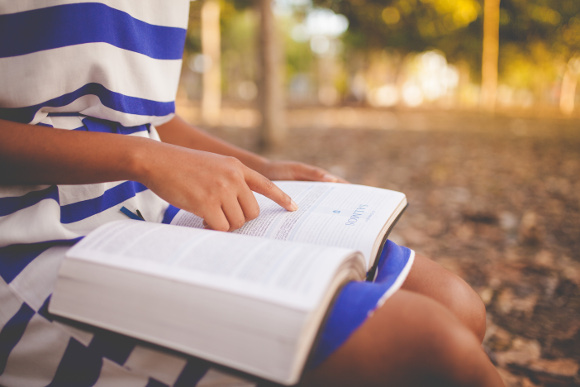
“From there we traveled to Philippi, a Roman colony and the leading city of that district of Macedonia. And we stayed there several days. On the Sabbath we went outside the city gate to the river, where we expected to find a place of prayer. We sat down and began to speak to the women who had gathered there.” (Acts 16:12-13)
Have you ever wondered what the Early Church looked like? What kind of people made up those Christian communities? What kind of work did they do? Luke gives us a beautiful snapshot of a few of the people that made up the church at Philippi, located in modern day Greece.
The first convert was a businesswoman named Lydia. She sold purple cloth and was evidently very successful. She was able to host Paul and his team at her house and her home became the first meeting place for the Philippian Church. Luke lets us know that she, “and the members of her household were baptized.”
Isn’t it interesting that the first convert to Christianity in Europe was a woman? And not only that, she was a successful businesswoman. In allowing her house to be used as a meeting place for the church, she would have had some type of leadership role as well.
The next convert that Luke mentions was a slave girl. She was possessed by an evil spirit that allowed her to tell people’s fortunes. Luke tells us that she made her owners, “a great deal of money.”
When Paul set her free from the evil spirit, this set off a riot in which Paul and Silas were beaten and thrown into jail. The slave girl is not mentioned again in Acts. It is very likely, however, that the Philippian Christians purchased her freedom. We don’t know this for sure but Luke’s placement of her story in Acts seems to indicate that she became a part of the church in Philippi.
Slaves were evidently numerous in the early Church. Paul mentions them in many of his letters. This shouldn’t be too surprising since at least a third of the Roman Empire was made up of slaves. This slave-girl stands in stark contrast with Lydia. And yet, they both saw their need for Christ and had their lives transformed. One of the most amazing things about the Church is how the Holy Spirit creates unity among people of very diverse backgrounds.
The next Philippian convert that is mentioned in Acts is the Roman prison guard. He was tasked with housing and guarding the prisoners, who on that day included Paul and Silas after their beating. Later that night, when an earthquake shook all the cell doors open, Paul kept the jailer from committing suicide. The jailer asked the famous question, “What must I do to be saved?” Paul answered him, “Believe on the Lord Jesus Christ and you will be saved, you and your household.”
This First Century civil servant and his family became the next members of the Philippian Church. So far, we have Lydia and her household, the demon-free slave girl, and the prison guard and his family. This was a great start to a church plant.
The next question becomes, who will lead this new church? Paul and Silas were released from jail but were commanded to leave Philippi because they were considered trouble makers. An interesting transition takes place in the text of Acts at this point. Luke had been writing in the first person and narrating the account with “we” passages. As Paul and Silas leave town, however, Luke transitions back to the third person, making it clear that he stayed behind in Philippi.
Doctor Luke was one of the most educated of the New Testament writers. His two books, the Gospel of Luke and the Acts of the Apostles, make up almost 25% of the New Testament. Luke writes as a pastor, using stories to teach important lessons. His writings make it clear that he was more than just Paul’s doctor and assistant.
Luke was a spiritually mature leader who would have been the perfect pick to become the Philippian Church’s first pastor. The Philippian Church became very influential. They were also able to financially support the Apostle Paul and they had a great reputation for living out the Gospel. For more information on this Christian community, read Paul’s letter to the Philippians.
Annie and I are serving the Lord in the US, Africa, South America, and India. Would you consider becoming a part of our team? Together, we can make a difference. Just click here to get involved. Thanks so much!
